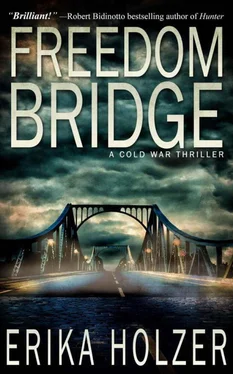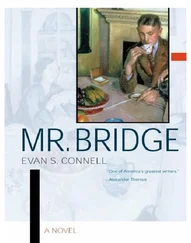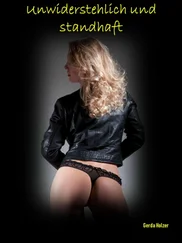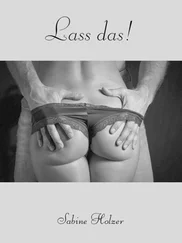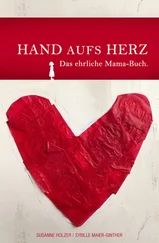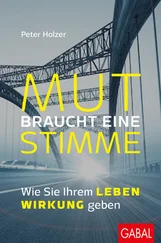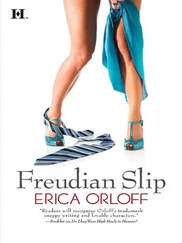“For me too,” Houston confessed.
“I know. I’m going to tell you a story. What your CIA and your State Department choose to do with it is up to them. But I’ll tell you now—‘upfront,’ as you Americans like to say. In return for what I have, I want my freedom and I want it now.”
Houston looked at him intently. He had never heard Stepan sound so uncompromising.
Brodsky spelled out the whole story, and then held up his lighter. “Here’s the deal, Paul. I keep the microfilm in my lighter until you tell me your people will go for it—my freedom in exchange for high-level intelligence. And not just mine. Someone else’s.”
“Someone who’s still in the Soviet Union?” Houston said skeptically.
“My closest friend. We go back a long time. He risked his life to get the microfilm—and not just to help me. He’s wanted to defect as long as I have. Every day he remains in the Soviet Union, his life is in grave danger. So tell your people it’s me now, my friend as soon as possible—from Moscow to wherever your CIA can exfiltrate him. Maybe from Leningrad to Finland?”
Houston looked uncomfortable. “Getting you out is hard enough, Stepan. But someone else who’s still in Moscow? That’s a tall order.”
“Try to imagine what it’s like to be an exile in your own country,” Stepan said softly. “My friend and I have felt that way all our lives. I cannot—I will not—abandon him.”
“Something just occurred to me,” Houston said. “If the Soviets shoot down the U2, giving Khrushchev a good excuse to walk out tomorrow morning—how can your film prove the Russians intended to blow up the summit even before it began?”
Stepan smiled. “Don’t take this personally, but my friend was one step ahead of you. The microfilm contains a date stamp.”
A look of fierce determination crossed Houston’s face. “I’ll try tonight by secure line. What worries me is that I’m dealing with bureaucrats. They have a certain mindset.”
“Meaning?”
Houston shook his head in disgust. “They’re shortsighted. Pragmatic. They have a tendency to play it safe in this era of so-called good will with the Soviets. ‘Moscow is edgy,’ they keep telling me. ‘We’ve seen too many defections to the West lately’.”
Brodsky paled.
“First things first,” Houston said, gripping Stepan’s arm. “Keep the lighter while I work on getting you out of here. Then we’ll see about your friend.”
The next morning—May Day in Potsdam, East Germany—the summit began early.
Dwight Eisenhower, Nikita Khrushchev, Harold Macmillan, and Charles de Gaulle sat at a large square conference table, their military and civilian staffs seated behind them. Microphones had been placed in front of each participant. On a green felt tabletop were arrayed the usual pitchers of water, glasses, pads, pencils, and the like. Each of the four men had large ring binders nearby. Translators were out of sight.
The agenda and considerable preparatory work with the foreign ministers of the other countries had been completed well in advance by the American Department of State. Essentially there were two issues literally on the table. Foremost was the fate of Berlin. Was it to remain divided, militarized? The second issue involved a much-discussed nuclear arms treaty that was to be the subject of a subsequent summit.
As the four world leaders shuffled papers and the audio technicians tested sound levels and recording equipment, high in Soviet airspace pilot Frances Gary Powers’ supersonic U2 had been detected. A Soviet air defense general ordered the attack. His fighters were ordered to engage in suicidal maneuvers by ramming the American U-2 if there was no other way to bring it down.
Initial interceptions failed. Powers was up too high for the fighters, his U2 out of range.
Until it was hit by a surface-to-air missile.
Powers bailed out of the crippled aircraft even though, to avoid being taken alive, he’d been supplied with a poison-tipped needle hidden by CIA spooks in an American silver dollar. Contrary to strict orders, Powers didn’t use it.
At about 5:00 P.M. during the summit’s afternoon session, an aide approached Khrushchev and whispered in his ear. As he listened attentively, his face reddened. Suddenly he erupted from his chair and began shouting in Russian. The translators could barely keep up. To everyone not in on the act—and not all of the Soviets were—Khrushchev’s bombast seemed legitimate.
It virtually wrote the script for what Soviet Ambassador Dmitri Zorin would reiterate later that day in New York City.
The Soviets had Francis Gary Powers. And to the chagrin of the American intelligence establishment, they had not only Powers but also considerable wreckage from the super-secret U2 aircraft.
“Since our partnership in the Great Patriotic War with the countries represented here, too often Western hostility has blunted my country’s good intentions!” Khrushchev bellowed. “I have just been informed by Moscow that the imperialist United States has violated Soviet airspace and spied on our socialist nation. The purpose of this summit was to resolve important problems concerning Berlin and nuclear annihilation. Yet behind our back, the United States has been flying over the Union of Soviet Socialist Republics. Why? To take photographs of our defenses against imperialist subversion and aggression.”
President Eisenhower’s face was impassive. CIA at Langley had received a coded flash cable in the middle of the night from Paul Houston, warning that the Soviets would try for the U2, and that if they succeeded, would use it as an excuse to walk out of the summit.
Having readied himself for that possibility, Khrushchev’s bluster had no effect on Eisenhower, who had readied himself for that possibility.
Charles de Gaulle smirked, although it was not clear why or at whom.
Harold Macmillan tried to suppress a smile. Those who noticed figured that MI-5 or MI-6 had put him in the picture.
Khrushchev continued his rant. “We have your man, ‘Proudest’!”
Eisenhower suppressed a smile over Khrushchev’s mispronunciation of Powers .
Khrushchev raised a plump fist. “In the name of the Soviet Union, I demand an apology from the President of the United States.” He glared at Eisenhower. “I demand assurances that nothing like this will ever happen again.”
Looking Khrushchev squarely in the eye, Eisenhower said, “You won’t get an apology from me.”
Khrushchev and the rest of his delegation stormed out.
Chaos. Three of the Four-Power delegates were ushered out by their security personnel. Staffers packed. Reporters rushed for telephones. Limousines pulled up in front of Cecilienhof Palace.
Houston went into the bar for a stiff drink.
Stepan Brodsky joined him. “That was quite a show,” he said.
“Wasn’t it, though?” Houston said soberly, staring into his drink. “I got through last night to the CIA. Thanks to your information, President Eisenhower had advance notice.”
“I’m glad, Paul. Any news about me and my friend?”
When Paul Houston looked up, Brodsky shuddered inwardly. Houston didn’t have to answer his question—not with that ravaged face, those bloodshot eyes. “Last night I had a long-shot chance that my government wouldn’t turn me down,” Houston said tonelessly. “But after what happened here today— I’m so sorry, Stepan, and so damn helpless.”
Brodsky squeezed his shoulder. “You better get going, Paul. The limousines have already pulled up in front of the Palace. I’m expected outside too.”
They abandoned their bar stools and headed for the exit.
When Houston was a few steps ahead, Brodsky called after him. “I want you to know something, Paul. Working with you these last few months has been like having a small glimpse of all the things I’ve missed in my life. Thank you for that.”
Читать дальше
